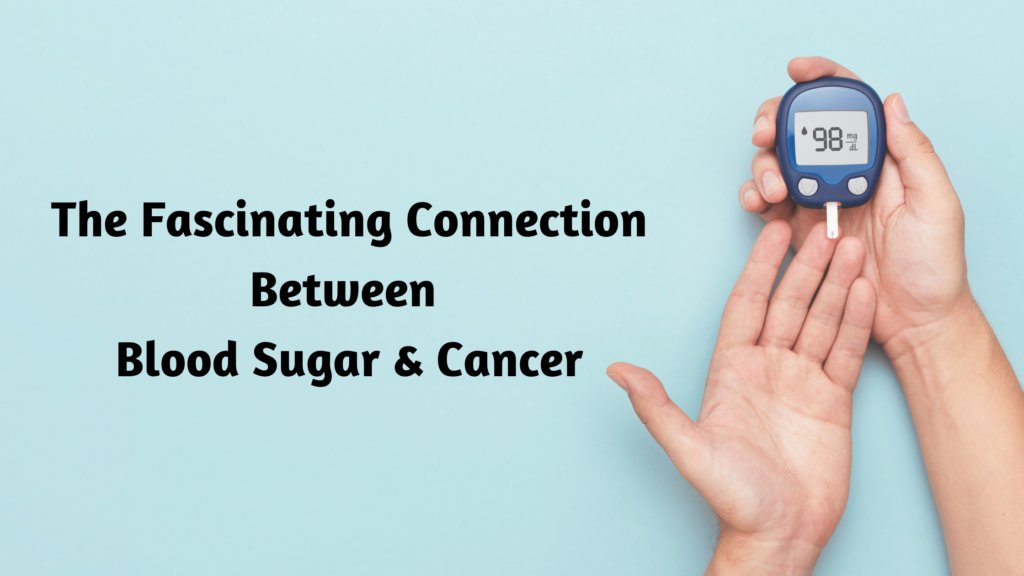

The connection between blood sugar and cancer is real. Blood sugar imbalances are a key factor in the development of both cancer and diabetes, as they often stem from the same underlying causes. Think about it this way: diseases occur when your body is not at ease, it’s in dis-ease. Our bodies are designed to be functional and healthy, but our world (GMOs and other toxins in food, lack of exercise and sunlight, stress and bad sleep, etc.) can drive our bodies to dis-ease.
Epigenetics proves the above statement to be true. It is the study of how cells control gene activity without changing the DNA sequence. In short, it tells us that our lifestyle has far more to do with our health than our genes. Your DNA is not your destiny. You can prevent disease-producing genes from “turning on” with lifestyle choices. For example, please read this blog for an in-depth article about how, even if you do have the feared BCRA Gene, you can strategically prevent breast cancer.
The same is true for diabetes and most health challenges.
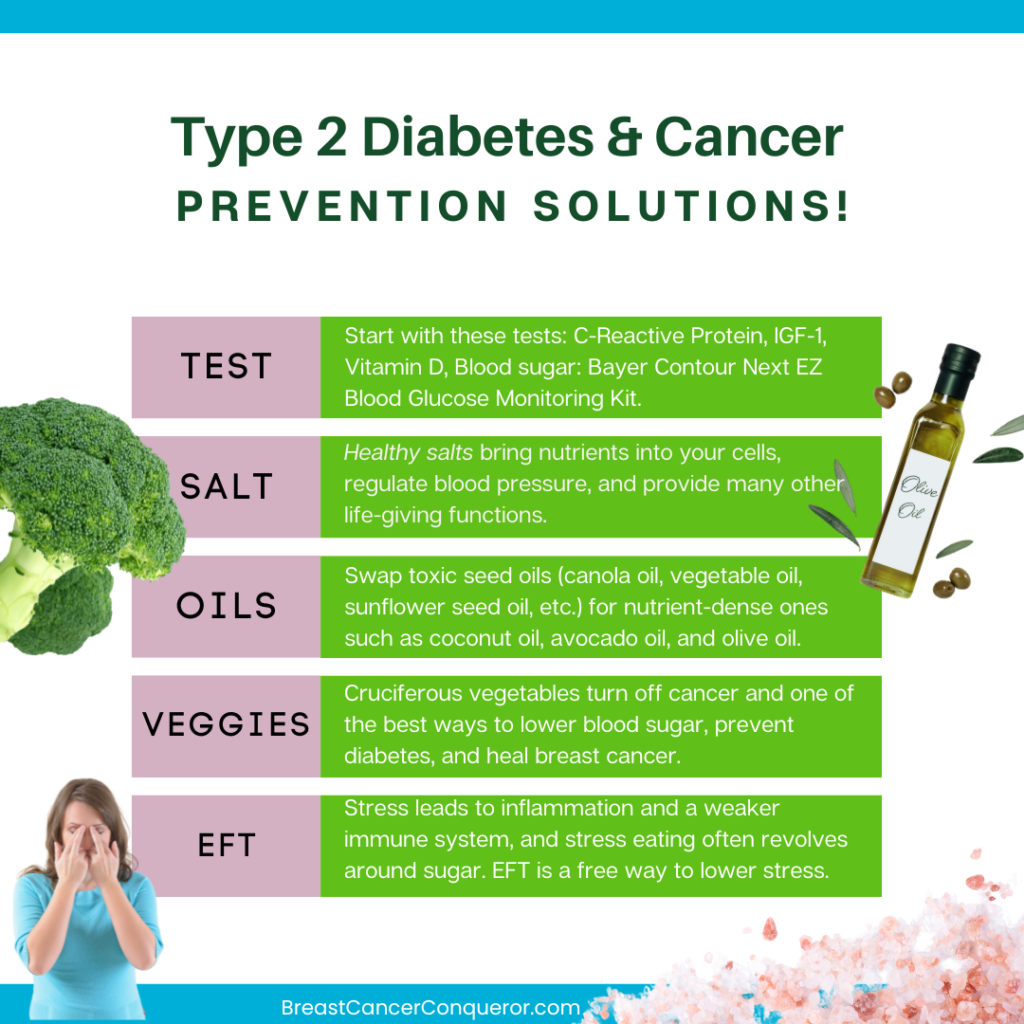
Type 2 Diabetes & The Breast Cancer Connection
Many studies have found that postmenopausal women who have Type 2 Diabetes have a 20% higher risk of developing breast cancer, so let’s dive into the connections and how you can prevent them. Type 2 Diabetes and (many) cancers can often be caused by poisoning your body with stress, toxins, lack of exercise, excessive carbs, artificial ingredients, toxic sugar, etc. It’s a chronic condition that is a combination of insulin resistance and pancreatic failure.
However, it’s not just something “you have to accept.” It’s totally preventable, and living a healthier lifestyle can help you manage both Type 2 diabetes and breast cancer. Here’s the connection and pathway to both diseases:
Sugar
Cancer: Cancer cells have 44 times more insulin receptor sites for sugar (glucose) compared to healthy cells. This means that cancer cells get fed first by sugar. In short, SUGAR FUELS BREAST CANCER CELLS.
Diabetes: A high-sugar diet can lead to insulin resistance, which is a precursor to type 2 diabetes. To learn more about the damaging impact sugar has on your body and how it fuels cancer cells, please read this blog post.
Blood Sugar Levels
Several hormones, including insulin, control blood sugar levels. When blood sugar levels rise, the pancreas releases insulin to help glucose enter cells and be used for energy. 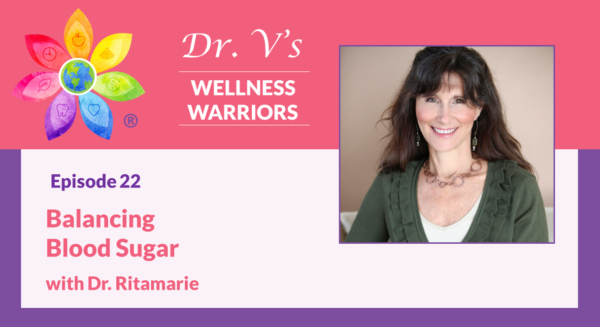
Cancer: High blood sugar leads to insulin resistance and can also make breast cancer cells more resistant to chemotherapy and other immunotherapies and hormone therapies. (2021 study). Additionally, high blood sugar comes from eating too much sugar, and since sugar fuels the growth of cancer cells, it should only be sparsely consumed. Please listen to this podcast episode on balancing blood sugar to learn more.
Diabetes: Type 2 diabetes is the result of having blood sugar levels that are consistently high or hyperglycemic.
Test! Please watch this video to learn why and how to test your blood sugar levels.
IGF-1 (Insulin Growth Factor)
Insulin-like growth factor-1 (IGF-1) is a growth hormone produced in the liver. It is similar in molecular structure to insulin and promotes cell growth. However, too much of it can increase the risk of ER-positive breast cancer, dense breast syndrome, and lower immune system functionality.
Cancer: IGF-1 is known to encourage the growth and proliferation of cancer cells, and this study found it may be present in up to 90% of breast cancer tumors.
According to research published in the International Journal of Cancer, there is significant “cross-talk” between Insulin-like Growth Factor-1 (IGF-1) proteins, estrogen hormones, and their respective cellular receptors within the mammary glands. This means these signaling pathways actively interact and influence each other, potentially playing a role in breast cancer development and progression.
Diabetes: Too high IGF-1 levels can lead to insulin resistance and, therefore, type 2 diabetes because it has a similar hypoglycemic response to insulin and can modulate insulin receptor activity. Please review this 2024 study to learn more.
Insulin Resistance & The Breast Cancer Connection
The term Insulin resistance was mentioned a few times above, but if you are not familiar with it and curious about how it’s deeply connected to breast cancer, this section will connect the dots.
Insulin resistance occurs when your body’s cells don’t respond properly to insulin, a hormone that regulates blood sugar levels. The main cause is too much sugar, which leads to high blood sugar levels. Spikes in blood sugar tell your pancreas to release more insulin to move blood sugar into your cells, but eventually, your body won’t be able to keep up. Your body will respond with pre-diabetes symptoms such as blurred vision, fatigue, tingling feet, frequent urination, etc.
And since no aspect of our beautiful bodies lives in a silo, here’s how insulin resistance is connected to a higher risk of breast cancer:
Increased Inflammation
Those who have pre-diabetes will almost all have systemic inflammation in the body—AND about 95% of all cancers have inflammation in common. Chronic inflammation creates an inviting environment for cancer (and most major dis-eases) to develop and grow due to immunosuppression. “Anything that causes inflammation will cause the DNA of a cell to replicate faster,” says Dr. Brad Mons at City of Hope. “The more your cells replicate, the higher chance you have of cancers developing.”
Higher IGF-1
High IGF-1 levels can lead to hormonal imbalance, especially the overstimulation of aggressive reproductive hormones like estradiol, creating hormone imbalances. Please read this blog post to learn how out-of-balanced hormones can lead to breast cancer.
Higher ROS Levels
Research has also found that metabolic syndrome is linked to more production of a substance called ROS, or “reactive oxygen species.” Another word for ROS is a “free radical.” Too many free radicals in the body can cause DNA damage and cancer, and this blog post provides more details and practical repair solutions.
Dr. V’s Solutions
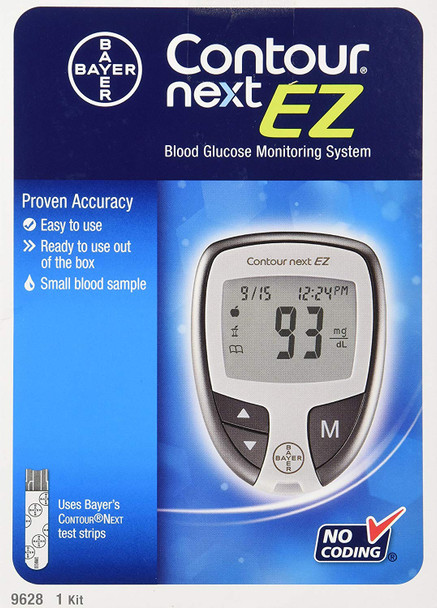 TEST. Don’t stress and guess!
TEST. Don’t stress and guess!
Start with these tests:
- C-Reactive Protein
- Homocysteine
- ESR
- LDH
- IGF-1
- Vitamin D
- Blood sugar: Bayer Contour Next EZ Blood Glucose Monitoring Kit. Please learn more via this blog post.
- Hb-A1C
Eat salt.
Despite what many doctors will say, you actually do need salt. Just choose good options such as pink Himalayan sea salt or Redmond Real Salt instead of table salt loaded with synthetic ingredients, such as anticaking agents, bleach, plastics, and fluoride. Many doctors will tell you that salt will raise your blood pressure, damage your cardiovascular system, and so forth, but they are referring to table salt (a.k.a. sodium chloride), not essential mineral salts that provide neuroprotection of your brain and nervous systems. The RIGHT salts carry nutrients into your cells, regulate blood pressure, and provide many other life-giving functions.
Do EFT/Tapping.
Stress can lead to inflammation and the breaking down of your immune system, and stress eating often revolves around sugar. Emotional Freedom Technique, or “tapping” is easy to learn, free, and quick to lower stress levels. Please read this blog post to learn more.
Contact Dale of EFT Universe for a free session: delmardale@msn.com
Take Apple Cider Vinegar.
Daily consumption of diluted apple cider vinegar might help control blood glucose indices and lipid profiles in people with Type 2 diabetes.
Supplement with Modified Citrus Pectin. 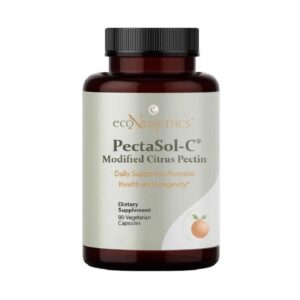
The survival protein (galectin-3) can be hijacked by cancer and used to promote cancer growth and metastasis. However, MCP is the most-researched galectin-3 blocker. Please learn more via this podcast episode and this blog post.
Eat Cruciferous Vegetables.
One of the best ways to lower blood sugar and prevent diabetes and cancer is by eating vegetables, and cruciferous vegetables control cancer’s “on and off” switches of breast cancer. Please learn more about nature’s healers via this blog post.
Swap Seed Oils for Healthy Options.
Sunflower oil, canola oil, vegetable oil, cottonseed oil, sesame oil, grapeseed oil, vegetable oil, etc., are all called “seed oils” and are horrible for your health. They are sky high in inflammation (omega-6 fats), contribute to heart disease, lack nutrients, are extracted from GMO plants that are heavily sprayed with RoundUp, and induce oxidative stress and insulin resistance.
Just make an easy switch to nutrient-dense oils: coconut oil, avocado oil, and olive oil. Please read this blog post on how olive oil is a powerful cancer healer.
Live the 7 Essentials System®.
Your doctors will give you a treatment plan, but you deserve a total mind, body, and soul HEALING PLAN that sets you on a path to vibrant health. My 7 Essentials System® is here to guide you each step of the way!
Delicious Gluten-free & Sugar-free Desserts!
Let’s end on a sweet note, literally! Thanks to the delectable, traditional, and comforting recipes below, you don’t have to stress about the ingredients. All of these are gluten and sugar-free, and low-inflammatory desserts that you and your family and friends will love!
- Mini Apple Pies. Nothing smells like tradition, warmth, and happiness like an apple pie! Serve warm with homemade coconut whipped cream.
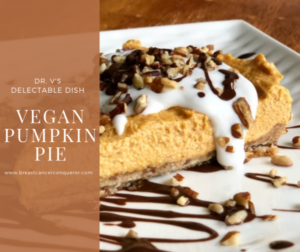
- Raw Vegan Pumpkin Pie. This pie is truly mouth-watering and packed with cancer-fighting goodness! What a treat!
- Chocolate & Flax Pudding. This luscious treat fuels your body with powerhouse nutrients. For example, flax seeds inhibit the growth of estrogen-dependent breast cancer and even strengthen the effects of tamoxifen.
- Blueberry Chocolate Bark. These are super helpful to keep on hand for when you just need that little bite of chocolate. Satisfying and packed with cancer-stopping antioxidants and superfoods—how sweet is that?!
- Coconut Banana Ice Cream. It’s a cold, creamy dream boat! It tastes just like chunky monkey ice cream—minus the sugar, dairy, and artificial toxins!
Lastly, I am always here to help, encourage, and provide insight! Please always feel free to reach out with questions, thoughts, stories, or whatever else you want to share via my contact form. Big heart hugs!
Author: Dr. Veronique Desaulniers, better known as Dr. V, is a Doctor of Chiropractic & has 44 years of experience in the wellness industry. For personalized support, please partner with a trained Breast Cancer Conqueror Coach.
